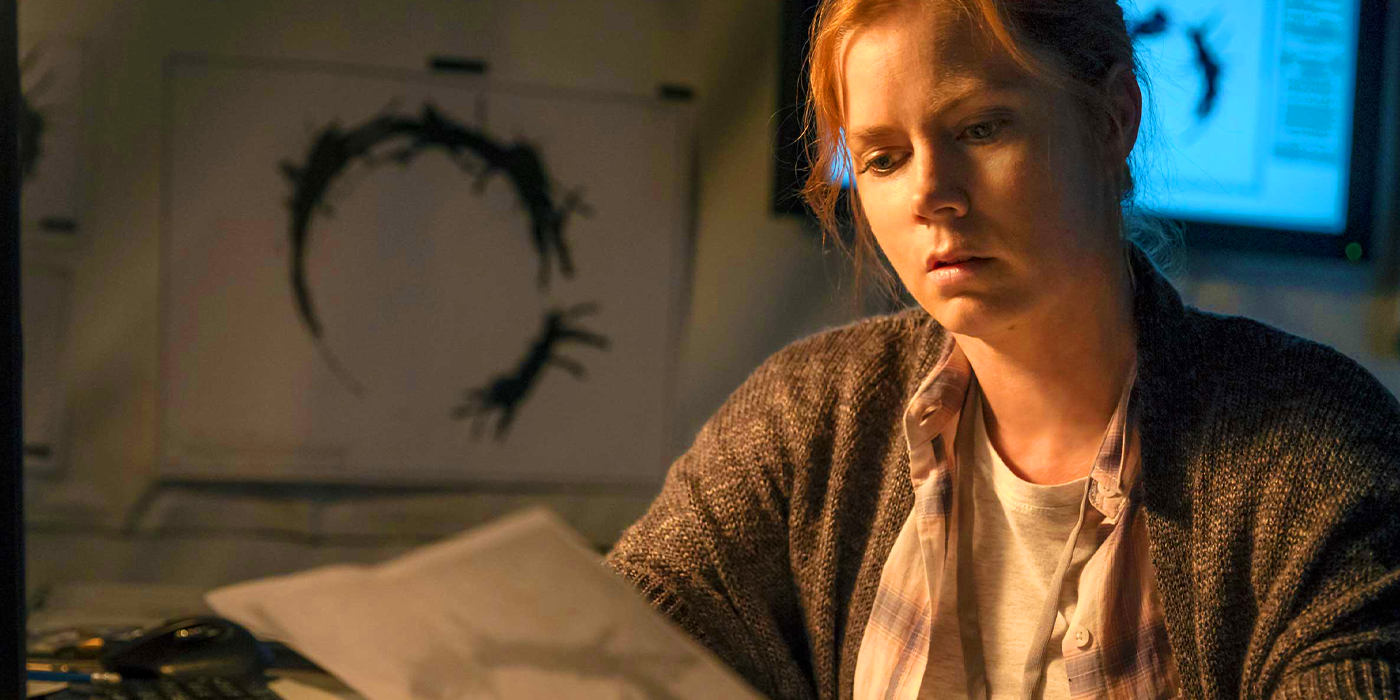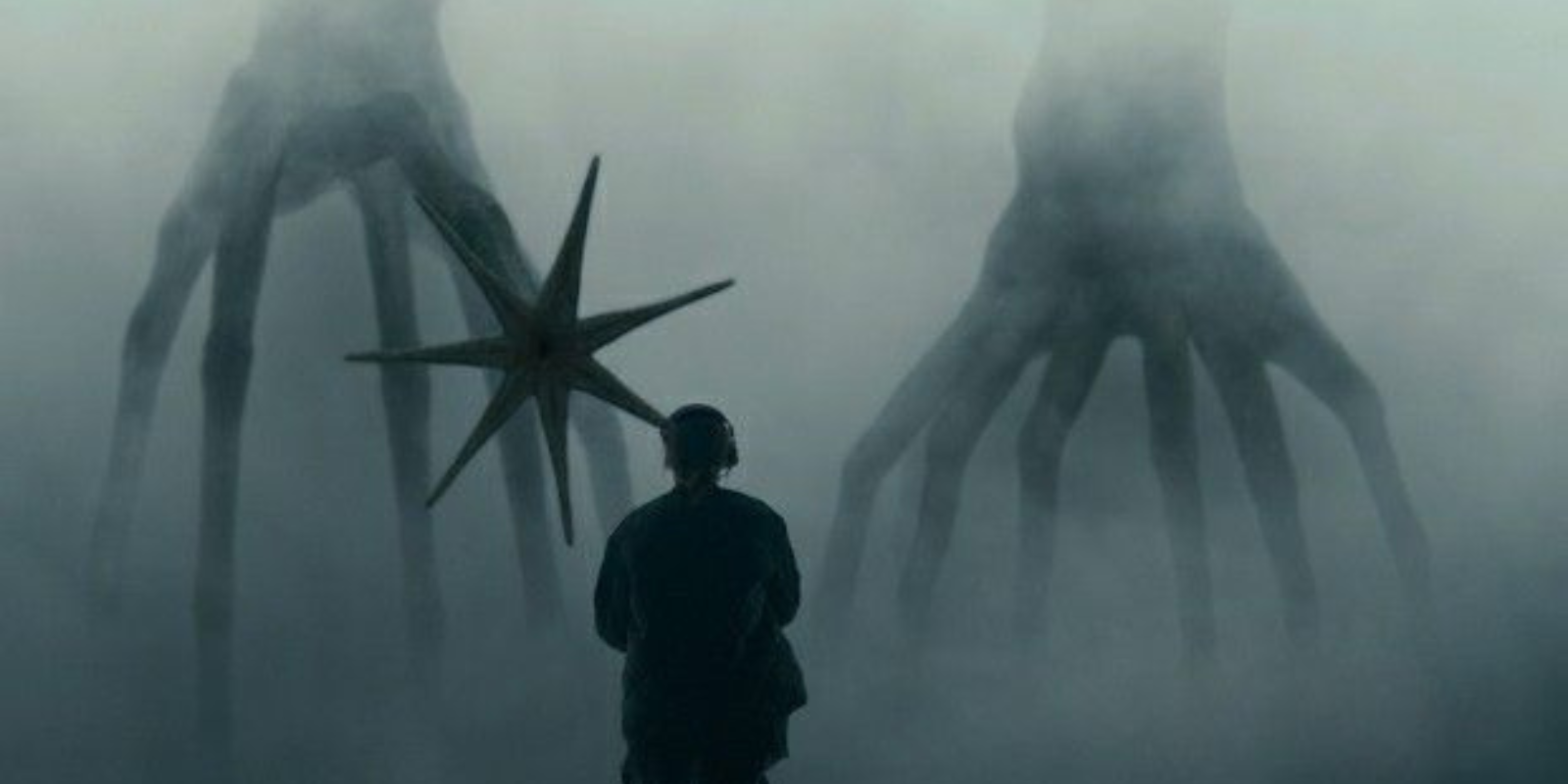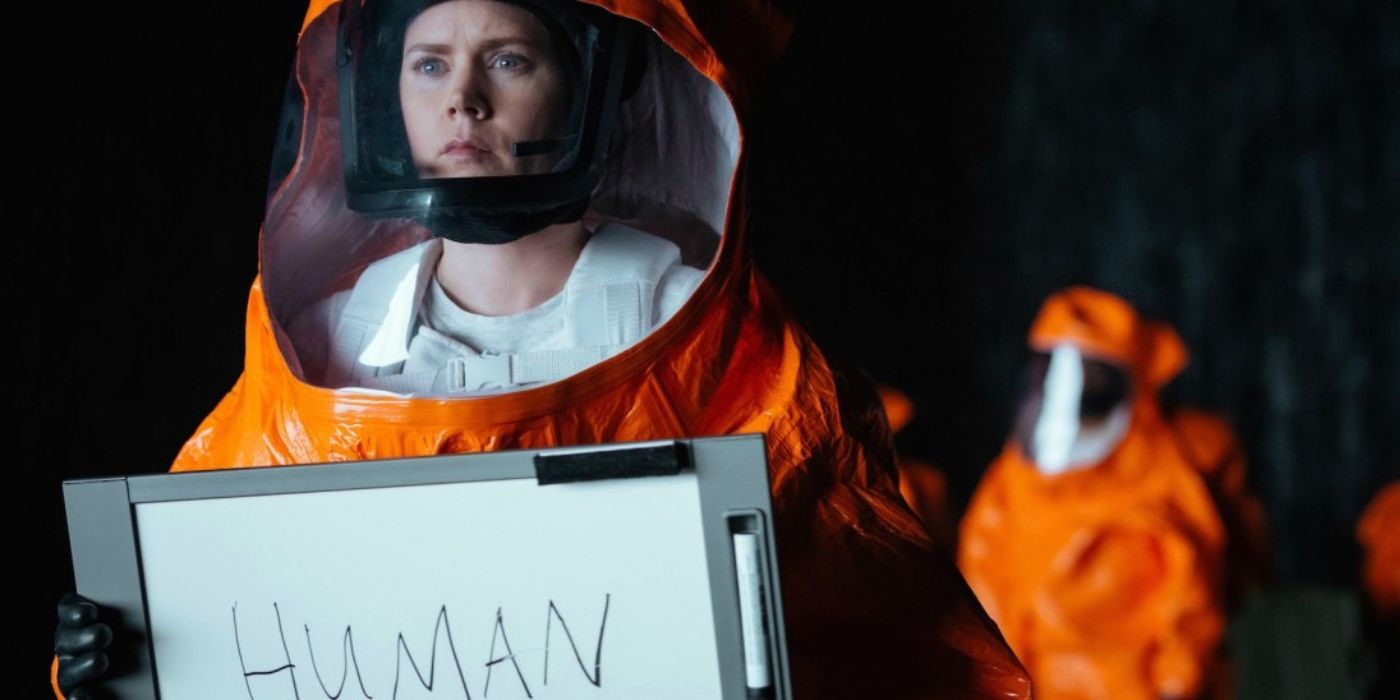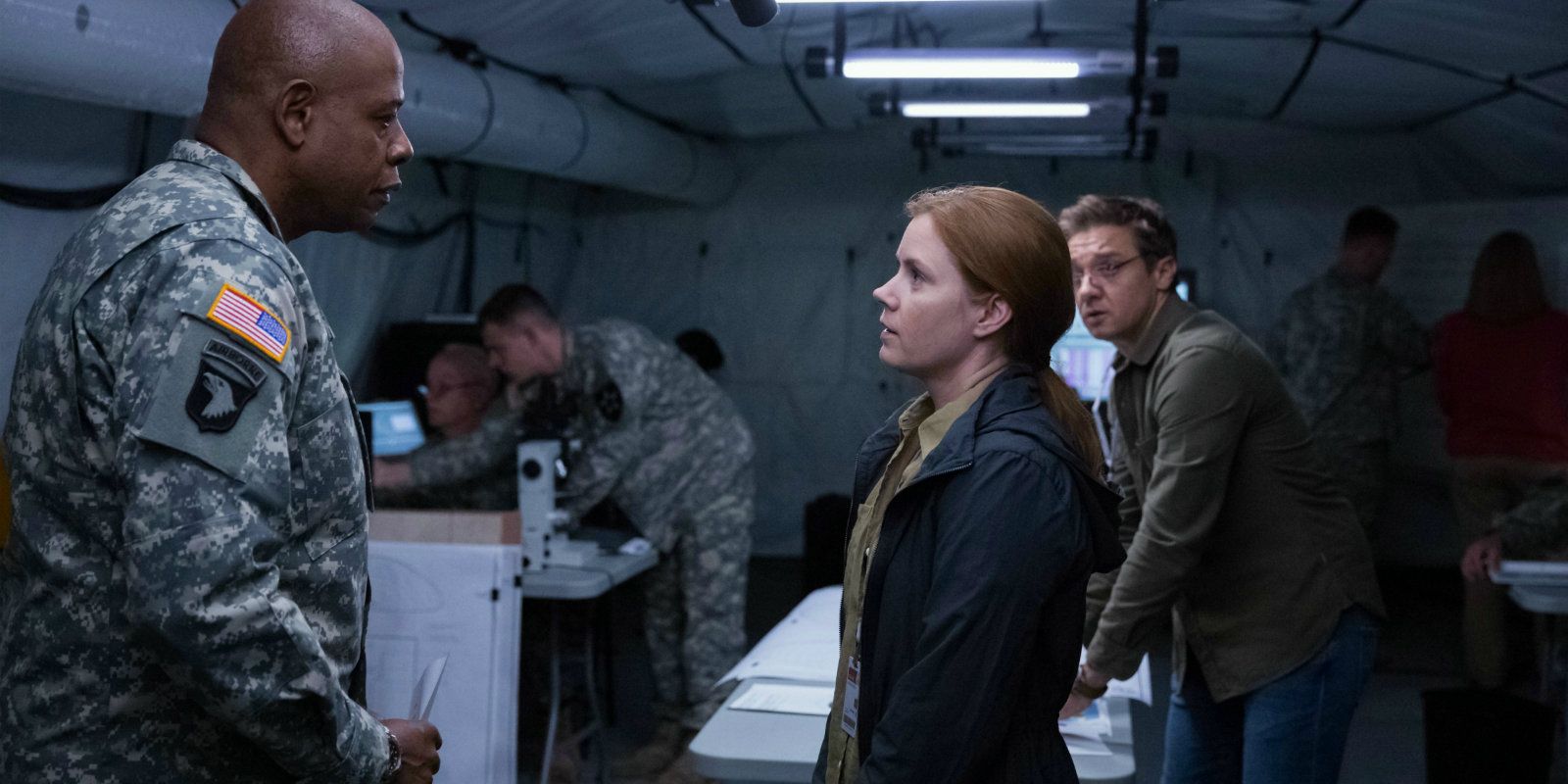
Warning: This article contains spoilers for Arrival.
In the 2016 movie “Arrival,” an alien spacecraft touches down on Earth, bringing with it a mission that deviates significantly from common expectations. Originally published as a novella titled “Story of Your Life” by Ted Chiang in 1998, the film centers around linguist Louise Banks, who is recruited by the U.S. military to decipher the mysterious language of the aliens. Unusually, the story unfolds across two distinct timelines that are skillfully woven together, culminating in a shocking and enlightening finale.
One captivating aspect that sets Arrival apart is its intriguing alien beings, the “heptapods.” Unlike typical alien depictions as gray-skinned creatures with elongated heads and large eyes, or fearsome figures like those in Ridley Scott’s Alien, the heptapods are instantly distinctive. They communicate in a peculiar manner, using dark ink circles, which Louise eventually deciphers. What makes these aliens even more intriguing is that they aren’t just visually unusual; their characters also present unexpected traits.
The Aliens Came To Earth To Help Humans Evolve In Arrival
What The Aliens Offer To The Humans In Arrival





In a departure from conventional alien narratives, the heptapods in Arrival are portrayed not as invaders but as benefactors instead. At first, the appearance of multiple spacecraft has the human characters on edge, suspecting the heptapods’ intentions to be malicious. However, as Louise and her partner Ian begin to decipher the heptapod language, they come to understand that these extraterrestrials are not here for conflict, but to assist humanity. A key revelation in this process is when Louise translates one of the first phrases she learns, which is “offer weapon.” Intriguingly, it’s revealed that this “weapon” is actually the heptapods’ language itself.
In the escalating conflict, when humans prepared to counterattack the seven-legged aliens (heptapods), Louise braved their spaceship solo. Inside, she found out that the heptapods desired humans to collaborate in deciphering their language. This is crucial because mastering their language allows individuals an extraordinary ability: they can perceive time outside of its usual linear flow. The heptapods thought this skill would be advantageous for humanity. This discovery clarifies why Louise has been experiencing visions of a daughter who she hasn’t yet given birth to and who is fated to succumb to an enigmatic disease.
The Aliens Would Need Help From Humans In 3000 Years
Arrival Could Get A Sequel (But It Shouldn’t)

In simpler terms, “The heptapods are aiding humans now because they believe that humans will return the favor in the future.” This interpretation suggests that the heptapods have faith in humanity’s ability to cooperate and assist them when they need it 3000 years from then. The film “Arrival” does not reveal what specific help the aliens require or the details of this future event, but their actions make their intentions more understandable.
One captivating aspect of the plot in Arrival is that it leaves room for a potential sequel, exploring new challenges faced by the heptapods in 3000 years. However, it might be more fulfilling for Arrival to continue as a standalone piece. The true enchantment lies not in the extraterrestrial beings but in their impact on Louise and her subsequent life. Essentially, Arrival is a deeply personal narrative rather than an apocalyptic one.
Read More
- Who Is Harley Wallace? The Heartbreaking Truth Behind Bring Her Back’s Dedication
- 50 Ankle Break & Score Sound ID Codes for Basketball Zero
- Basketball Zero Boombox & Music ID Codes – Roblox
- 50 Goal Sound ID Codes for Blue Lock Rivals
- Summer Games Done Quick 2025: How To Watch SGDQ And Schedule
- LINK PREDICTION. LINK cryptocurrency
- Revisiting Peter Jackson’s Epic Monster Masterpiece: King Kong’s Lasting Impact on Cinema
- 100 Most-Watched TV Series of 2024-25 Across Streaming, Broadcast and Cable: ‘Squid Game’ Leads This Season’s Rankers
- The best Easter eggs in Jurassic World Rebirth, including callbacks to Jurassic Park
- TikToker goes viral with world’s “most expensive” 24k gold Labubu
2025-04-26 17:07